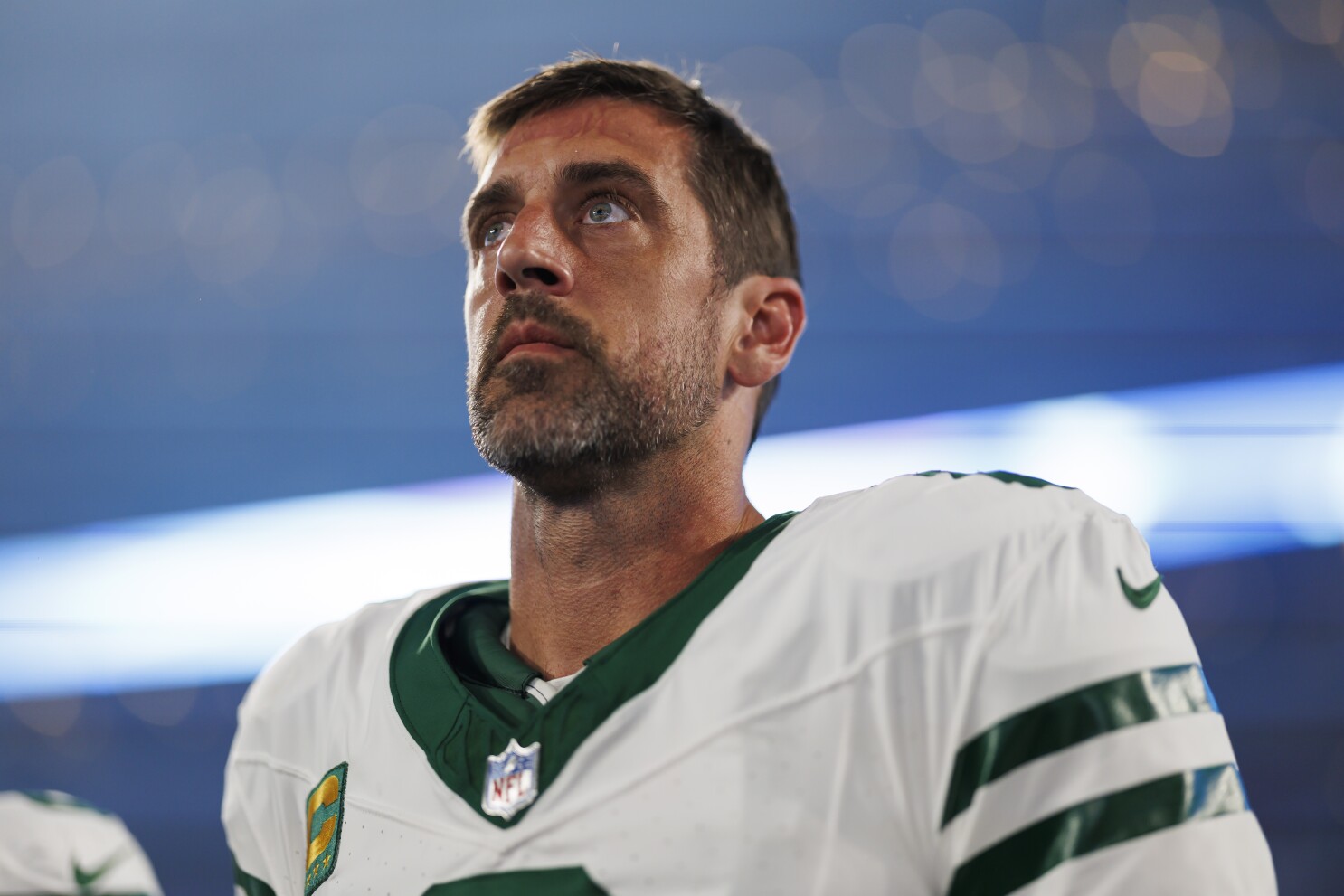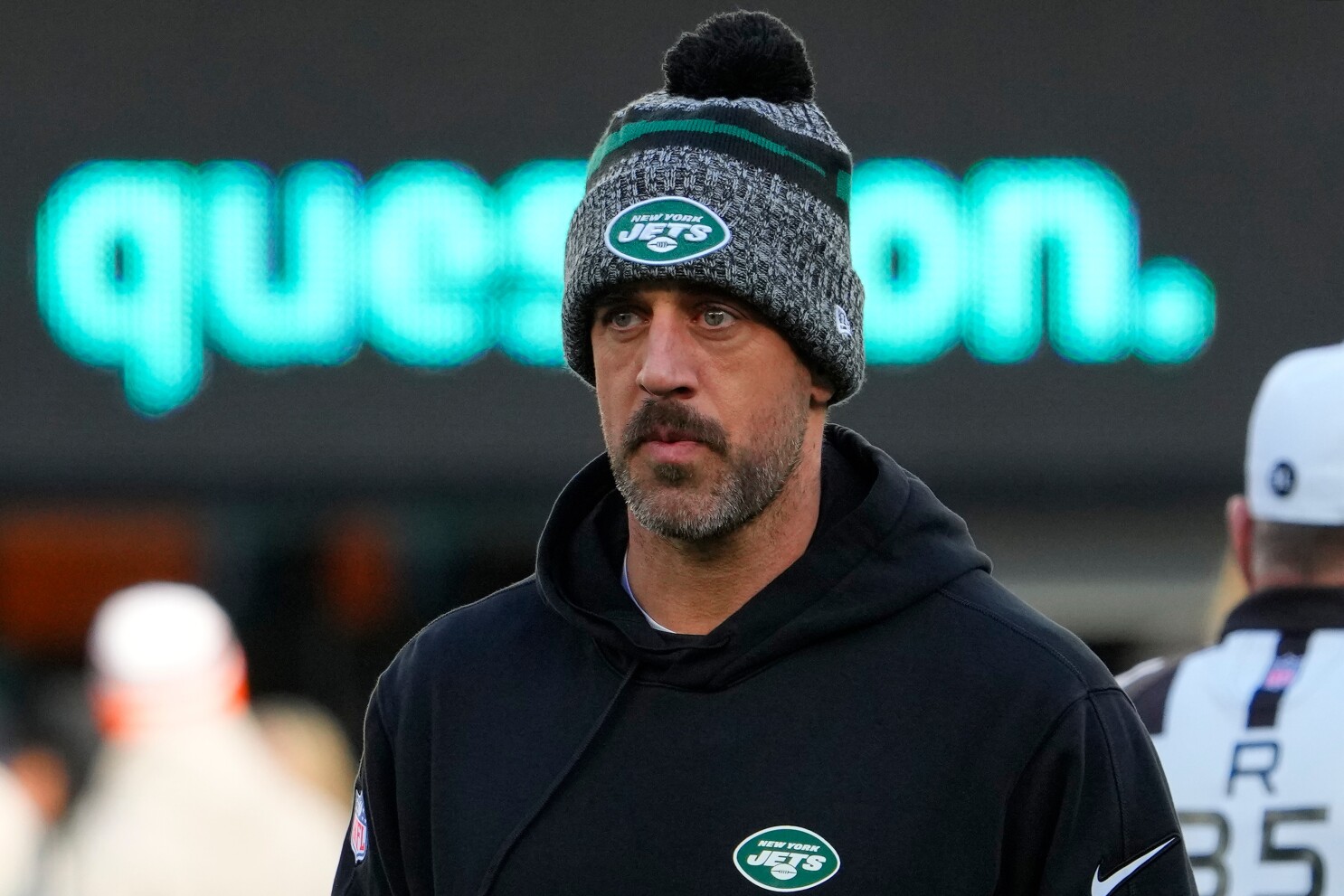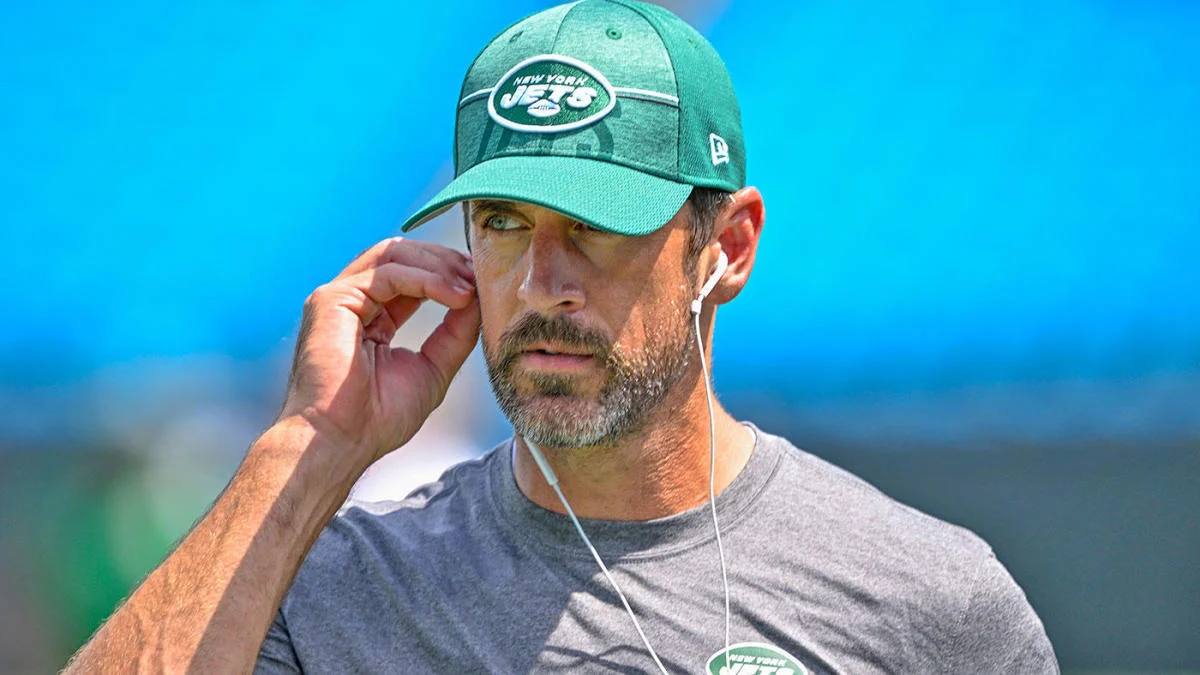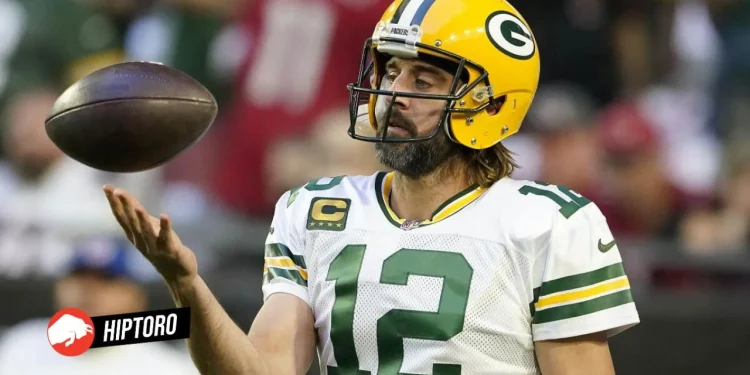In a turn of events that intertwines the realms of professional sports and political aspirations, Aaron Rodgers, the renowned quarterback for the Jets, finds himself at the center of speculative political discourse. The buzz surrounding Rodgers is not about his on-field prowess or his next big game strategy. Instead, it revolves around a surprising consideration by U.S. presidential candidate Robert F. Kennedy Jr.
According to reports, Rodgers was momentarily contemplated as a potential vice-presidential pick, a revelation that bridges two vastly different worlds: the adrenaline-pumping action of the NFL and the strategic maneuverings of political campaigns.

Aaron Rodgers’ Potential Political Pivot
The notion that a celebrated athlete like Aaron Rodgers could transition into a political role is as intriguing as it is unprecedented. While the final decision veered away from this possibility, the mere consideration sheds light on the evolving dynamics between public figures and political influence.
Rodgers, with his immense popularity and significant social media presence, represents a new era where the lines between entertainment, sports, and politics blur.

The Intersection of Sports and Politics: A New Frontier?
The speculation around Rodgers’ political involvement is indicative of a broader trend where athletes and entertainers are increasingly engaging with political and social issues. The transition from sports icons to political figures is not entirely new, but the scale and impact of these crossovers are growing, propelled by the digital age’s connectivity and the global reach of social media platforms.
Athletes like Rodgers possess a unique platform that can amplify messages, mobilize support, and bring attention to critical issues, making them attractive considerations for political alignments.
Aaron Rodgers for Comeback Player of the Year is a lock. pic.twitter.com/zeH8wQs4KP
— yuta (@cantfindyuta) March 19, 2024
The Role of Media in Shaping Perceptions
The intertwining of Rodgers’ potential political venture with his sports career also highlights the critical role of media in shaping public perceptions. The narrative, as unfolded in reports, transcends traditional sports coverage, delving into the realms of political reporting and speculative analysis.
This blend of content not only captivates a diverse audience but also prompts a discourse on the responsibilities of public figures in leveraging their influence for political or social causes.

Staying on the Field
Ultimately, Aaron Rodgers remains a figure synonymous with exceptional sportsmanship and leadership on the football field. The flirtation with political possibilities, while fleeting, opens up conversations about the roles and expectations of athletes in the public domain.
As society navigates the complexities of celebrity influence on political processes, figures like Rodgers remind us of the potential and the pitfalls of crossing into realms traditionally reserved for career politicians.
In conclusion, the Aaron Rodgers saga—spanning the fields of the NFL to the speculative corridors of political candidacy—offers a compelling glimpse into the evolving landscape where sports, entertainment, and politics converge.
While Rodgers will not be trading the football for a seat in the political arena anytime soon, the dialogue his potential candidacy sparked continues to reverberate, challenging us to rethink the boundaries between personal achievement, public influence, and political aspiration.

Source: CBS Sports









